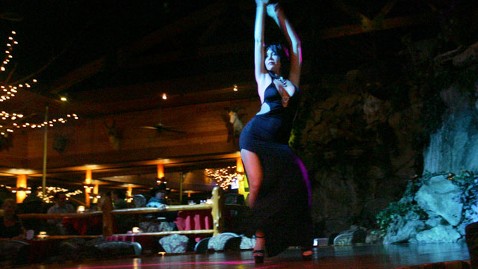Illinois Proposes $5 'Skin Tax' for Strip Clubs

(Image credit: LM Otero/AP Photo)
So-called "sin taxes" exist for smoking, gambling and alcohol, so Illinois State Sen. Toi Hutchinson says it's about time there was a "skin tax" for strip clubs.
Hutchinson, a Democrat, introduced a bill in the state legislature on Feb. 7 that proposes a $5 tax for the entry of each customer admitted into a live adult entertainment facility.
Called the "Live Adult Entertainment Facility Tax Act," the proceeds would go to a proposed fund, the Sexual Assault Prevention Fund, with the state's treasury. Also the state's Department of Human Services would make grants from the fund to sexual assault organizations with whom the department has contracts to provide assistance to victims of sexual assault and prevention.
"In my mind, it's not different from what the gambling industry does for gambling addiction programs and what the smoking industry does for health awareness," she said. "[Strip clubs] would be supporting the safety of women and I don't think it's too much to ask especially in light of the way they make their money."
Hutchinson said in light of the economic climate, state funding for rape crisis centers has declined and this tax could mitigate that effect.
The Coalition Against Sexual Assault, an advocacy group, approached her with the idea to sponsor the bill. Polly Poskin, executive director of the coalition, said her group's funding has dropped $1.2 million the past three budget years.
Hutchinson said she is not trying to shut down strip clubs and hopes to open discussion with those in the industry.
Chicago's Admiral Theatre is "strongly opposed to the proposed pole tax," Sam Cecola, the North Side club's director of operations, told the Chicago Tribune.
Micheal Ocello, president of the Illinois Club Owners Association, told the Tribune he cannot find scientific proof "that going to an adult club causes people to go out and commit rape, commit crimes," though he applauded Hutchinson for "trying to do something good."
Some sociology research has shown connections between strip clubs and organized crime and human trafficking in places like Queensland, Australia. Sheila Jeffreys, a political science professor at the University of Melbourne, wrote a paper called "Keeping Women Down and Out: The Strip Club Boom and the Reinforcement of Male Dominance" in 2008 that reviewed the global boom in strip clubs.
"Strip clubs are not separate from society but influence on many levels the way men relate to women," Jeffreys wrote.
Anthropologist Katherine Frank said one can't single out strip clubs as promoting women's objectification. She said attempts to link violence against women directly to visiting strip clubs or viewing pornography would be "far too simplistic."
"Women can be objectified many settings, from the workplace to the street," Frank told ABC News.
When asked about the chances for the bill's approval, Huthinson said, she was not sure, though she was "glad it is generating the conversation."
"We're not saying strip clubs are to be abolished or saying men who go to strip clubs are rapists, but we know strip clubs perpetuate that women's bodies are for sale," Poskin said.
Poskin said the coalition explored the idea two years ago to help women in rape crisis centers but the "timing wasn't right." She said the group waited to see how the state of Texas responded to a similar tax.
Texas Gov. Rick Perry signed a $5 "pole tax" law in 2007, which also collects $5 from alcohol-serving strip clubs for each customer that enters the club in order to fund sexual assault prevention programs. A strip club owner in Texas and the Texas Entertainment Association sued the state attorney general and comptroller over the tax, saying it restricted free speech. But the Texas Supreme Court ruled in August 2011 ruled that the fee was constitutional and was only a "minimal restriction."
Texas has already raised millions since the law was enacted and state lawmakers estimate it will bring in about $44 million.
Poskin said the coalition is trying to determine how many strip clubs are in Illinois to determine how much revenue the tax revenue could generate.
"We think this is an industry that can shoulder this taxation. This is not an industry that is suffering," she said.
Hutchinson, meanwhile, said she thought the issue is a "worthy discussion."
"Unlike my children, growing up I didn't have cell phones, cable and unrestricted access," she said. Hutchinson has three children, ages 15, 13, and 11, including a daughter in the middle.
"Now we live in a society where the objectification of women is a significant issue that, as parents, we have to face," she said.
ABC News' Amy Bingham contributed to this report.